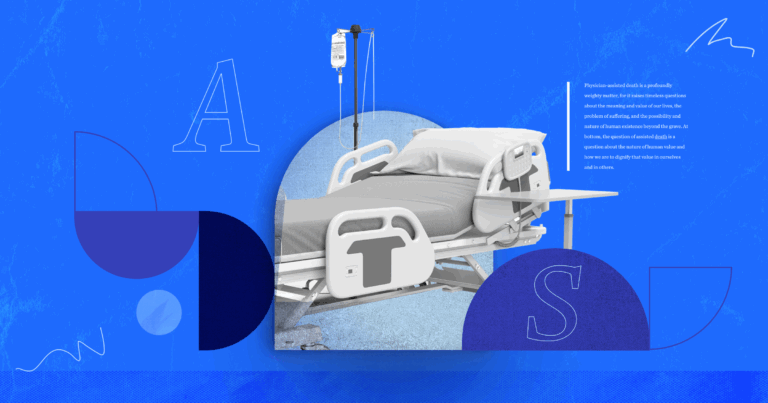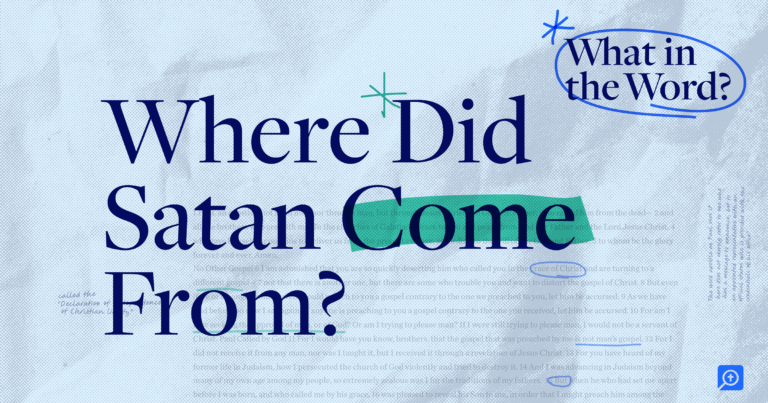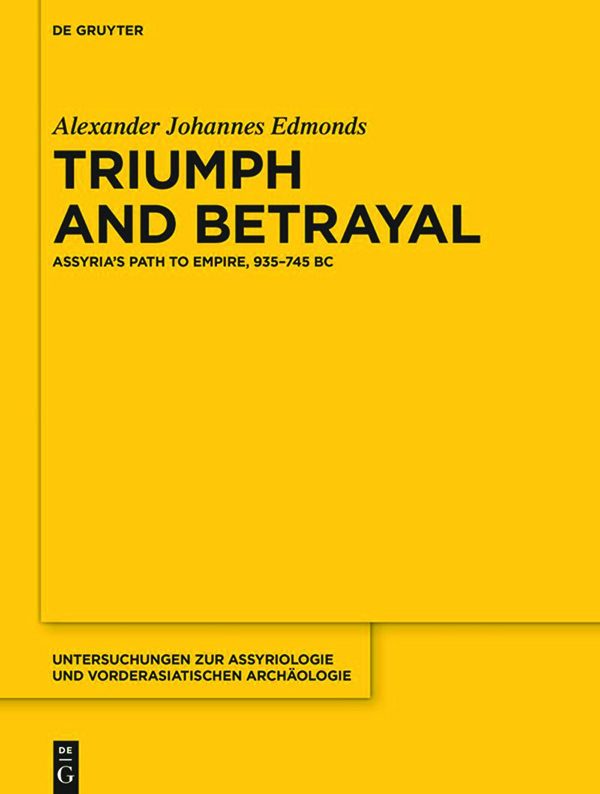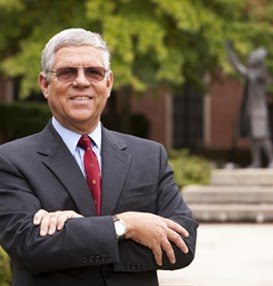
Physician-assisted death is a profoundly weighty matter, for it raises timeless questions about the meaning and value of our lives, the problem of suffering, and the possibility and nature of human existence beyond the grave. At bottom, the question of assisted death is a question about the nature of human value and how we are to dignify that value in ourselves and in others.
Those who by virtue of their professional commitments as doctors accept responsibility for the suffering of others feel a weighty responsibility to “do something.” Faced with incurable suffering, we feel the temptation to take matters into our own hands, as it were, “to take arms against a sea of troubles, and by opposing end them.”
However, I maintain that causing death to relieve suffering cannot be justified in principle under any conditions. My arguments for this position can be summarized in the following theses.
1. Because physician-assisted death intentionally aims to cause the death of the patient, it is distinctly different from other practices in end-of-life medical care.
Physician-assisted death refers to intentional and deliberate actions on the part of the physician aimed at causing the death of the patient. This intentional aiming at death clearly distinguishes physician-assisted death from other practices in end-of-life medical care such as palliative care, terminal sedation, or withholding or withdrawing life-sustaining therapies.
The specific moral question we are addressing is whether it is permissible and justifiable to deliberately cause the death of a patient when the patient has voluntarily requested the doctor to do so. The doctor may cause the patient’s death directly by administering a lethal dose of drug intravenously, or indirectly by providing the patient with a prescription for a lethal dose of a drug that the patient ingests on their own. In both cases, the physician is acting in order to cause death. Death is the express goal of the physician’s action. This intentionality is the defining feature of physician-assisted death. Physician-assisted death is therefore closely akin to suicide, even if the process involves external input and an external agent.
In criticizing the practice of physician-assisted death, I do not intend to suggest that these other practices are unethical. Indeed, they are often profoundly ethical provided they are performed in the right manner, at the right time, and for the right reasons. One of the important tasks of the physician is to judge when and how to care for patients by intervening less aggressively, rather than more aggressively, and to determine what treatments are helpful or unhelpful to those who are dying. Palliative medicine, the legacy of a Christian physician named Dame Cicely Saunders, has proven effective at helping seriously ill patients enjoy life to the fullest possible extent as they journey toward death.
2. Patients seek physician-assisted death because life with suffering seems pointless to them.
Patients seek physician-assisted death not primarily because of physical suffering or uncontrolled pain, but rather because life with suffering seems pointless to them in light of a loss of autonomy, independence, or sense of meaning and purpose.
Survey data presented in this book demonstrate that uncontrolled physical pain and symptoms are far from the main reasons that patients seek physician-assisted death. Rather, patients seek death because of concerns over loss of autonomy and independence, a fear of being a burden, and sense of meaninglessness and purposelessness in life. No less than other forms of suicide, a desire for physician-assisted death is an expression of despair.
Because these forms of suffering represent existential, psychological, and spiritual phenomena, they are far more difficult for doctors to address. Indeed, they are more properly addressed through pastoral care. Physician-assisted death represents a desperate attempt by doctors to overcome the spiritual challenges presented by suffering and death.
This entails that those who lack the spiritual resources required to face suffering and death will be far more likely to seek physician-assisted death. Indeed, social-scientific data suggest that those who typically seek physician-assisted death in Canada are wealthy, white, and nonreligious. Although such persons are not typically regarded as vulnerable because of their socioeconomic status, such an assessment of vulnerability is rather superficial. It seems plausible that their nonreligious outlook on life makes them profoundly vulnerable to the desire for death. Given that spiritual concerns about the purpose of life in the face of suffering are determinative of the choice to seek physician-assisted death, an inability to sustain one’s meaning and purpose in the face of suffering should count as the most important form of vulnerability to the desire for death.
3. People have intrinsic value, not merely extrinsic value.
We may distinguish between two basic forms of value, extrinsic and intrinsic value. Whereas we have extrinsic value by virtue of the things we can do, we have intrinsic value by virtue of what we are. Extrinsic value derives from utility; consequently, if that which has extrinsic value loses its utility, it also loses its value. That which has intrinsic value, by contrast, cannot lose its value, for its value derives simply from what it is. Intrinsic value is therefore unconditional value.
Things that have intrinsic value have two particular characteristics that help us to recognize that value: They are priceless and irreplaceable. For example, one might say that certain great works of art such as the Mona Lisa have intrinsic value. Given its historical, cultural, and artistic significance, you couldn’t really put a price on such a work of art, and you certainly couldn’t replace it if it were destroyed. The most pronounced example of these characteristics is, of course, people. People are priceless (any attempt to buy or sell them inevitably fails to recognize their worth; hence, slavery is a great evil). People are irreplaceable. We are each utterly unique in our person and in our value.
One important difference between intrinsic value and extrinsic value is that the former kind of value creates an obligation for us to manifest respect and appreciation for that value. In this sense, we say that intrinsic value is “value from inside,” whereas extrinsic value is “value from outside.” Extrinsic value depends on our valuation of the object of value. Intrinsic value, on the other hand, commands our value and respect. If something is intrinsically valuable, we have no choice but to value it, and we are in the wrong if we fail to value it in accordance with its true value.
4. If people have intrinsic value, it is not appropriate to intentionally end their existence.
To understand the connection between intrinsic value and the wrongness of causing death, consider the following syllogism:
- If something has intrinsic value, it is always good that it exists.
- If it is good for something to exist, it is not appropriate to end its existence.
- Therefore, if people have intrinsic value, it is not appropriate to intentionally end their existence.
There is a deep connection between value and the goodness of existence. To say that something has value is to say that it is good that it exists. This is easily appreciated by reversing the logic; if you say that it does not matter whether something exists, you are also saying that it is of no particular value. So we cannot value something without also valuing its existence.
Now, if something is intrinsically valuable, then its value is unconditional. And if its value is unconditional, then the value of its existence is unconditional. If something has intrinsic value, then it is unconditionally good that it exists.
So to suggest that it is better for something not to exist is necessarily to declare that it does not have intrinsic value. Claiming that it is good to end someone’s existence implies that their existence is not unconditionally good; rather, the goodness of their existence is conditional. If this were the case, they could not possibly have intrinsic value.
But since we have established that people have intrinsic value, we are forced to conclude that their existence is unconditionally good. If this is the case, then it is never good for them to cease existing, and it is not appropriate to intentionally cause their death.
5. Physician-assisted death devalues people.
By endorsing a patient’s desire for death, physician-assisted death affirms that it is not good for them to exist and denies that they have intrinsic value. Therefore, physician-assisted death devalues people.
This thesis is the simple corollary of the last. By declaring that it is in fact appropriate to cause the death of a particular kind of patient who meets prespecified eligibility criteria, physician-assisted death necessarily denies that it is unconditionally good for that person to exist. If the goodness of that person’s existence is only conditional, then they do not have intrinsic value. And if the goodness of some people’s existence is conditional on the desirability of their lives to them, then this is true for all of us. Hence the goodness of existence is conditional for all of us, and none of us have intrinsic value.
If the goodness of some people’s existence is conditional on the desirability of their lives to them, then goodness of existence is conditional for all of us, and none of us have intrinsic value.
In this way, support for physician-assisted death forces us to deny that people have intrinsic value. It remains to us only to have extrinsic value, whether to ourselves or to anyone else. And since mere extrinsic value is a lesser and conditional form of value in comparison to intrinsic value, physician-assisted death detracts from human value. It devalues people.

6. Value based on personal autonomy can only be extrinsic and conditional value.
Basing respect for life on respect for personal autonomy does not equate to respect for intrinsic human value. Value based on personal autonomy can only be extrinsic and conditional value.
Founding the value of life on the obligation to respect personal autonomy entails that the goodness of a person’s existence is conditional on their own personal satisfaction with life. While this may feel like a form of intrinsic value, since the valuation is independent of our own personal judgment, it is in fact a form of extrinsic value because the person’s value is conditional on their own valuation. In this sense, founding respect for life on respect for autonomy invites people to regard themselves as means to their own ends. So long as their existence is useful to achieving their goals, it is of value. If their existence is no longer useful to them, then it is of no value. Therefore, offering to cause death out of respect for autonomy invites people to regard themselves as only conditionally valuable. Respect for autonomy does not equate to respect for intrinsic human value.
If we are priceless and irreplaceable, possessed of intrinsic value, then this is a fact that we must bear in mind of ourselves as well as of others. Indeed, it is the task of those who care for the sick and the suffering to remind them of the true depths of their value. We are to invite those who feel useless and weak and worthless to remember that they are priceless and irreplaceable. This is the highest motivation of medical care.

Study pressing issues like euthanasia within Logos using Factbook.
7. In using death as a remedy for suffering, physician-assisted death presumes to know what it is like to be dead.
Physician-assisted death purports to be an act of compassion or mercy. To claim that death is good for you, you have to make some assumption about what it is like to be dead. Uncertainty over what it is like to be dead famously prevented Hamlet from taking his own life in Shakespeare’s play. Claiming to help someone by taking their life is boldly presumptuous. If and only if we know what it is like to be dead can we confidently assert that someone is better off dead.
The question is whether doctors have grounds for such knowledge of what it is like to be dead. In fact, this is a philosophical question, inaccessible to the empirical methods of medical science. Doctors cannot pronounce with any authority on whether there is life after death. Neither, indeed, can patients. Claims about the existence and nature of life after death will always be matters of speculation, apart from divine revelation, and this is just as true for those who deny the possibility of life after death as it is for those who believe in the possibility of life after death. Those who argue in favor of physician-assisted death do not typically cite Scripture or divine revelation in support of their position. Most advocates for the practice cite their atheistic commitments as motivation for their support for physician-assisted death.
Physician-assisted death should therefore be understood as an act of deep faith in one’s personal philosophical convictions about the nature of ultimate reality and human existence. In this sense, it is very much a religious (if godless) practice, rather than a scientific, evidence-based practice.
8. The arguments for physician-assisted death presuppose truths about human nature and ultimate reality that undercut those same arguments.
Reason reflecting on nature compels us to conclude that humans are composed of both a material substance, the body, and an immaterial substance, the soul. Because the death of our material substance (the body) does not necessarily entail the death of our immaterial substance (the soul), it is entirely plausible that human existence and consciousness continue beyond physical death. Since apart from divine revelation we do not know what this existence is like, we are never justified in claiming on our own authority that someone is better off dead or that we are helping them by causing their death.
Except for the most recalcitrant and committed skeptics, very few express doubt as to the existence of the human body. By contrast, many would express real doubt that humans also have an immaterial soul. To them, the idea of the soul seems like a relic of the premodern, prescientific cultural past. This understanding of what we humans fundamentally are (body and soul, or body alone) is important to discussions about physician-assisted death, since those who believe that we are purely physical (we are bodies without souls) are naturally inclined to believe that once bodily function has ceased, further existence or consciousness is impossible. On the other hand, if we have a soul, and if this soul is conscious, then it seems distinctly plausible that there could be life beyond the death of our bodies.
In entertaining these questions, we are transported into the abstruse world of the philosophy of mind. Yet, as it turns out, the arguments are relatively straightforward. If we were merely physical bodies, we would have to deny the possibility that our thought processes function according to reason and logic. If thought processes are only physical neurons firing electrical discharges, they would be entirely determined by the laws of physics and chemistry; we would have no real choice as to what to think. For the same reason, we would have no free will to decide what to do or to choose freely; we would be mere robots behaving according to predefined algorithms wired in our brains.
The problem, of course, is that we really do think, and we trust our thinking. We really do make free choices, and we hold others responsible for the choices they make. So we can’t just be physical objects. The only alternative is that we have a real mind, an immaterial substance that is the basis for our thinking and willing.
One example of such thinking and willing is deciding to request physician-assisted death. Those who support physician-assisted death claim that the patient has, through a thought process involving careful rational deliberation, decided they are better off dead. And they are happy to support this decision, provided it is made freely and autonomously by the patient. But such claims are impossible if we are merely physical objects. If we are merely physical objects, we neither think nor freely will anything (autonomy would be a mere illusion). So, by its very nature, the case for physician-assisted death presumes that we are both body and soul. Since the existence of the soul would give us a reason to doubt whether we are better off dead, we can’t support physician-assisted death without also having a reason to oppose physician-assisted death. In this way, the practice is self-refuting.
9. To live with suffering, we need transcendent meaning rather than self-invented meaning.
The fundamental challenge of suffering is to sustain meaning and purpose in life. To that end, we need transcendent meaning rather than self-invented meaning.
When forced to journey through a valley of sorrow and suffering in life, we quickly find ourselves wondering whether there is any point to trudging on. When life is easy, pleasant, and pleasurable, it’s easy to feel that it is good and worthwhile to be alive. Suffering challenges our sense of meaning and purpose in life. It forces us to come to terms with the reality that the meanings and purposes we invent for ourselves in life, whether through work or other pursuits, are more fiction than fact. If that meaning and that purpose are no longer within our grasp, we are brought face to face with the question of whether our existence has any real meaning or purpose that transcends our personal goals or desires. If our existence has a point that transcends our own personal projects, if we are part of a larger story, then we may find the strength to press on despite our sorrows. As Viktor Frankl puts it, “He who has a why to live can bear almost any how.” But if our existence is merely much ado about nothing, then suffering forces us to confront the simple fact that life is useless and so are we.
The fundamental challenge of suffering is to sustain meaning and purpose in life.
Alasdair Macintyre observes, “Man is in his actions and practice, as well as in his fictions, essentially a story-telling animal.” To make sense of our suffering and to bear up in the face of suffering, there needs to be a story behind and above our lives and our suffering. Macintyre continues,
“The key question for men is not about their own authorship; I can only answer the question ‘What am I to do?’ if I can answer the prior question ‘Of what story or stories do I find myself a part?’”
This is no less true when we confront the question, “Should I ask my doctor to end my life?” The answer depends on the story we find ourselves in and whether there is any story at all.
10. We know by nature that we matter, but we only clearly behold the true meaning and significance of our lives in the life, death, resurrection, and ascension of Christ.
Through reason reflecting on nature, we may dimly glimpse the truth that we are of profound value and that we exist for a purpose that transcends our personal desires and goals. But we only clearly behold the true meaning and significance of our lives in the life, death, resurrection, and ascension of Christ. Strengthened through the faith, hope, and love found in knowing Christ, we learn to see that our momentary life with suffering is not pointless but rather profoundly worthwhile.
Although it may be popular to insist that the only story for us is the story we write for ourselves, it’s hard to deny that there must be some grand story of which we are a part. The mere fact that the cosmos exists strongly suggests that there must be some story. For why is it here if there is no story? Where could it possibly have come from? What made the Big Bang go bang? Moreover, that we have intrinsic value and that it is unconditionally good that we exist could only be true if we had some significant role in a story beyond ourselves. The existence of space and time, the intrinsic moral value of humans, and the glory and beauty of nature, with its intricate biological design and cosmic fine-tuning, bespeaks the presence of an Author of the universe. There is some story being written. We must have transcendent meaning, if only we would open our eyes to see it.
Christians are those who have discovered that Christ reveals the true logic behind all things. The story of Christ’s life, death, resurrection, and ascension to glory makes sense of our momentary life with suffering. For our story is ultimately part of his story.
Through faith in Christ, we are reconciled to God, and Christ’s story becomes our own. Thus we find meaning, purpose, significance, and hope that transcends our circumstances and our pain. Faith in Christ gives us confidence that by his power and purposes he will vindicate our suffering. Hope in Christ gives us grace to patiently endure with eyes set on the eternal glory that we will soon enjoy with him. And the love of Christ satisfies our souls, for even better than a life free from suffering is a life lived in ever-deepening communion with God in Christ through the Holy Spirit.
Soon our pilgrimage through this vale of tears will be ended, and our bodies will return to dust as we await God’s new creation. Our only hope in life and death is that we belong, both body and soul, both in life and death, to our faithful Savior Jesus Christ. And until the Author of life brings our story on this earth to a close, we are wholeheartedly willing and ready to live for him.
This article is adapted from Ewan C. Goligher, How Should We Then Die? A Christian Response to Physician-Assisted Death (Lexham Press, 2024).
How Should We Then Die? A Christian Response to Physician-Assisted Death
Save $3.25 (25%)
Price: $9.74
-->Regular price: $12.99
Related articles
- Has Your Congregation Ever Heard a Sermon on Suicide?
- Preaching about Suicide: 5 Ways to Advance Hope
- 5 Lessons from Ephesians on Caring for the Sick & Distressed
- Who Sinned? Maybe No One: Mental Health & Broken Embodiment
- Bioethics from Embryo to Deathbed: Right, Wrong, and Healthcare


 1 week ago
18
1 week ago
18










 English (US) ·
English (US) ·